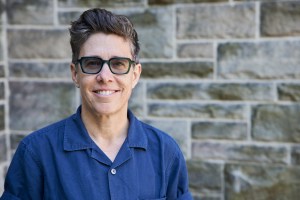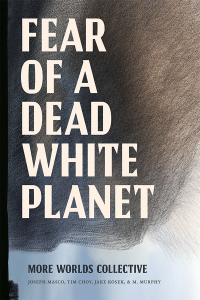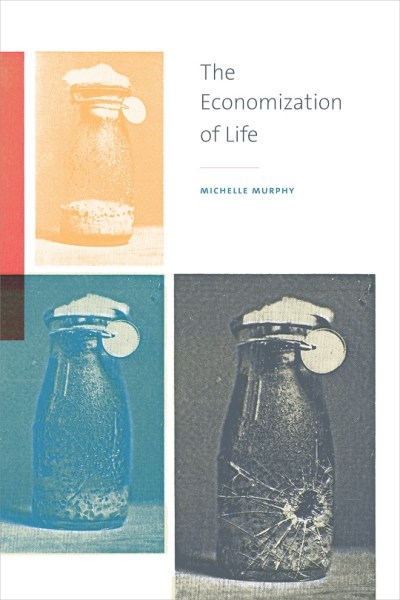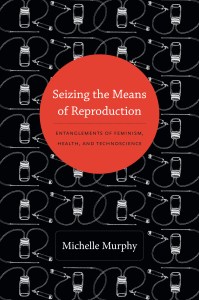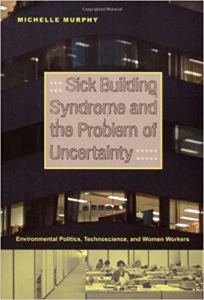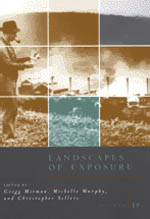The TRU is a home for graduate, postdoctoral, and faculty research in technoscience studies at the University of Toronto with a focus on critical, social justice, environmental and Indigenous approaches to the study of science and technology. The TRU is located in the School of Environment at the University of Toronto and is home to the Indigenous Environmental Data Justice Lab, the Indigenous Science and Ethical Substance Lab, and the Indigenous Science, Technology, and Education Research Hub. I have been the director of the TRU since its founding in 2007, and am currently co-director with Prof. Kristen Bos.
This Indigenous-led lab focuses on environmental justice in Chemical Valley, which is where 40% of Canada’s petrochemicals are refined, and is on the land of Aamjiwnaang First Nation. It is co-lead by Vanessa Gray (Aamjiwnaang First Nation), and Beze Gray, and includes other lab members. Our lab undertakes Indigenous community-based research. Some of our projects include the Pollution Reporter App, policy reports such as Data Colonialism in Chemical Valley, and the Land and Refinery Project.
With Kristen Bos, I co-lead this lab which focuses on how Indigenous and community-based methods can reshape approaches to pollutants, chemicals, and environmental data. This lab includes full-time staff researchers, postdoctoral fellows, graduate research fellows, and research assistants. The lab was first started through my role as lead social science PI in a large Canada First Research Excellent Fund grant on automated substance discovery, associated with the Acceleration Consortium. The TRU’s Indigenous Science and Ethical Substance Lab has a formal partnership within this CFREF to undertake research that brings Indigenous knowledges to the development of conceptions of “ethical substance” that bring greater consideration of justice in the creation of new chemical substances and the use of AI and automation in chemistry. The lab also undertakes research related to the an NFRF Transformation grant on Indigenous approaches to chemical risk management. Through this work, we are building strength in the field of Indigenous science and technology studies.
Bringing together geography, history, Indigenous studies , environmental studies, and science studies, the Engineered Worlds project seeks to re-theorize social science approaches to massive cumulative environmental violence. The Engineered Worlds project involved three courses, two conferences, and workshop. It was funded by the Neubaurer Collegium at the University of Chicago and is a collaboration with Joseph Masco, Jake Kosek, and Tim Choy. This project culimated with the Duke University Press book titled Fear of a Dead White Planet.
I am thrilled to be part of the editorial collective collaborating to make possible this journal, as well as serving as a lead editor from 2017-2019. Catalyst supports the expanding interdisciplinary field of feminist science and technology studies by supporting theoretically inventive and methodologically creative scholarship incorporating approaches from critical public health, disability studies, postcolonial studies, queer theory, sci-art, technology and digital media studies, history and philosophy of science and medicine. The University of Toronto Library hosts the open access OJS platform for Catalyst.
Launched in 2008, the Technoscience Salon is an open forum for entangling intellectual and political questions about technoscience while remixing the disciplines composing Science and Technology Studies. Creating a series of public events each year, the Salon aims to create a lively community of thinkers with interests in technoscience studies from around the GTA and beyond. The Salon aspires to prompt political, playful, experimental engagements, as well as new collaborations and conversations.
Past Collaborations
Environmental Data and Governance Initiative (EDGI)
EDGI is a North American network of 175 members from more than 30 different academic institutions and 10 non-profit or grassroots organizations, as well as caring and committed volunteers who come from a broad spectrum of work and life backgrounds. We work in collaboration with other organizations and communities concerned about climate change, science policy, good governance, and environmental and data justice with a focus on the United States. EDGI analyzes federal environmental data, websites, institutions, and policy, as well as seeks to improve environmental data stewardship and to promote environmental health and environmental justice. EDGI has four major program areas: ONE: archiving vulnerable environmental data, TWO: monitoring changes to information about the environment, energy, and climate on federal websites, THREE: interviewing federal employees about threats and changes to environmental health agencies, and FOUR: imagining, conceptualizing, and moving toward Environmental Data Justice. Our work in these areas has yielded three major reports, numerous website monitoring reports, academic articles, public comments on regulations, op-ed and analysis pieces written for the public, and extensive coverage in the news. EDGI is viewed as the preeminent watchdog group for material on federal environmental data issues on government websites. Our work is widely acknowledged, including hundreds of mentions in leading national and international media such as the New York Times, Washington Post, and CNN. For more about our accomplishments, read our Annual Report. I am a founding member of EDGI, served on the steering committee from 2016-2018, organized the first EDGI data archiving event, and lead the Environmental Data Justice Working Group.
Endocrine Disruptors Action is a working group of researchers concerned with the widespread presence of endocrine disrupting chemicals in commodities, built environments, industrial emissions, ecosystems, waters, and atmospheres. EDAction advocates for improvements to Canadian toxics governance and seeks to advance critical discussions about the regulation, science, and monitoring of endocrine disrupting chemicals. The work of EDAction is funded by the Alterlife SSHRC Insight Grant.
Select Other Past Collaborations:
-
- Biopolitics and Technocience Lecture Series organized with Brian Beaton (2006-7)
- Theorizing Transnationality, Gender, and Citizenship Lecture Series organized with Linzi Manicom and Alissa Trotz (2002-3)
- The RaceSci Website (1996-2007)
